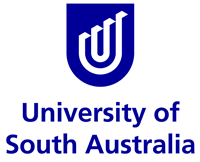Keen to advance your career in ecology and develop solutions for urgent climate change problems? The University of South Australia—Australia’s University of Enterprise—is offering the opportunity to apply for an important PhD project based at the Biodiversity Lab, in collaboration with the Department for Environment and Water.
Increasing drought and heatwave conditions linked to climate change are negatively impacting stringybark forests, resulting in forest canopy dieback. Stringybark forests are iconic in South Australia, are important wildlife habitats, and store considerable amounts of carbon. This project will investigate the extent, causes and flow-on environmental and ecological impacts of stringybark dieback in the Mount Lofty Ranges using field surveys and/or remote sensing.
Quantifying the extent of dieback in relation to seasonal climate and factors such as tree age, topography and grazing regime, will allow us to develop adaptive management approaches for these forests through climate-resilient stand management and reafforestation.
Determining the flow-on effects of dieback on species composition, vegetation structure and microclimate in these forests will also help us identify ecosystem-level impacts of dieback. Therefore, the project will develop a holistic picture of the extent, causes, consequences and conservation of stringybark forests in the Mount Lofty Ranges.
This project will allow you to apply ecological and remote sensing skills to a key conservation problem in South Australia with global applications. You’ll also benefit from exposure to the multi-institutional project team, involving stakeholders in government, local council, environmental groups and other universities. As part of the Biodiversity Group you will also be encouraged to participate in and contribute to the International Tree Mortality Network, which is part of the International Union of Forest Research Organizations (IUFRO).
This project collaborates with and is informed by the Australian government, local councils and NGOs. Trees For Life, Adelaide Hills Council, Mount Barker Council, Hills and Fleurieu Landscapes SA Board, Northern and Yorke Landscapes SA Board are forming a steering committee which will contribute to informing the project and potentially provide you with additional support.
What you’ll do
In this research degree project, you will undertake data collection using field surveys and remote sensing. The field surveys will include assessing the health status of trees and the impact of canopy loss on microclimate. Remote sensing will involve integrating existing data from various sources to quantify the extent of canopy dieback. Collected data will be processed and analysed using appropriate methods.
In this partnered project you will present your research outputs to stakeholders and be encouraged to publish in leading ecological and conservation journals.
This is an exceptional research project to address our current climate crisis and will position you as an expert in your field with valuable research and industry experience.
Where you’ll be based
You’ll be based in UniSA’s Biodiversity Lab which investigates the distribution, ecology and conservation of biodiversity in Oceania. The group, led by Associate Professor Gunnar Keppel is a welcoming and inclusive environment that provides research students with a supportive and ground-breaking research group.
Supervisory Team
Associate Professor Gunnar Keppel - Principal Supervisor
Dr Stefan Peters – Co-Supervisor
Anna Senior, Department for Environment and Water – End-User Advisor
Eligibility and Selection
This project is open to application from both domestic and international applicants.
Applicants must meet the eligibility criteria for entrance into a PhD. Additionally applicants must meet the projects selection criteria:
Essential
- knowledge of ecological principles and analyses
- knowledge of basic GIS and remote sensing skills
Desirable
- ability to undertake statistical analyses in the R statistical environment
All applications that meet the eligibility and selection criteria will be considered for this project. A merit selection process will be used to determine the successful candidate.
The successful applicant is expected to study full-time, and to be based at our Mawson Lakes Campus in the north of Adelaide. Note that international students on a student visa will need to study full-time.
Essential Dates
Applicants are expected to start in a timely fashion upon receipt of an offer. Extended deferral periods are not available. Applications close at 11.30pm [ACST], Wednesday, 2 February 2022.
Principal Supervisor: Associate Professor Gunnar Keppel

 Continue with Facebook
Continue with Facebook



